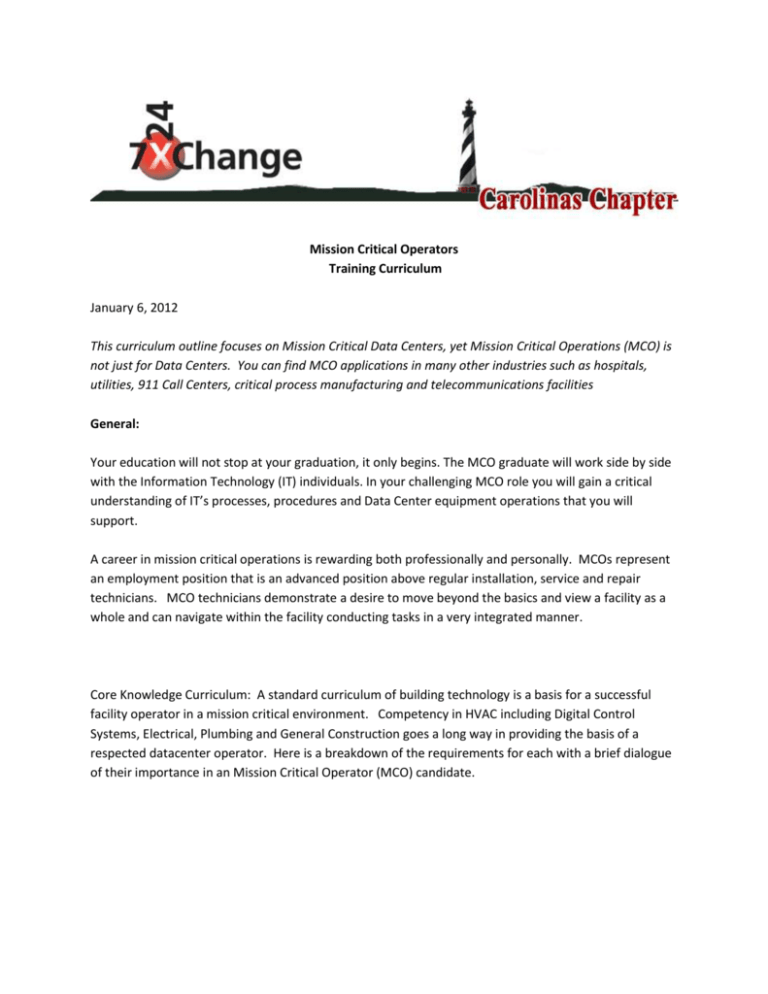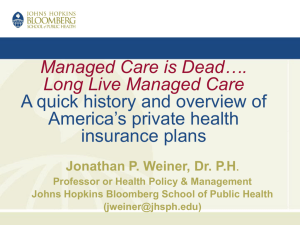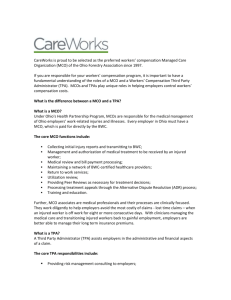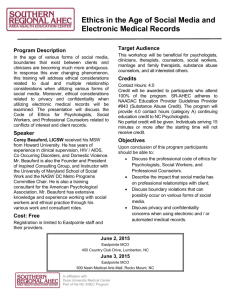Mission Critical Operators - 7x24 Exchange Carolinas Chapter
advertisement

Mission Critical Operators Training Curriculum January 6, 2012 This curriculum outline focuses on Mission Critical Data Centers, yet Mission Critical Operations (MCO) is not just for Data Centers. You can find MCO applications in many other industries such as hospitals, utilities, 911 Call Centers, critical process manufacturing and telecommunications facilities General: Your education will not stop at your graduation, it only begins. The MCO graduate will work side by side with the Information Technology (IT) individuals. In your challenging MCO role you will gain a critical understanding of IT’s processes, procedures and Data Center equipment operations that you will support. A career in mission critical operations is rewarding both professionally and personally. MCOs represent an employment position that is an advanced position above regular installation, service and repair technicians. MCO technicians demonstrate a desire to move beyond the basics and view a facility as a whole and can navigate within the facility conducting tasks in a very integrated manner. Core Knowledge Curriculum: A standard curriculum of building technology is a basis for a successful facility operator in a mission critical environment. Competency in HVAC including Digital Control Systems, Electrical, Plumbing and General Construction goes a long way in providing the basis of a respected datacenter operator. Here is a breakdown of the requirements for each with a brief dialogue of their importance in an Mission Critical Operator (MCO) candidate. Mission Critical Data Center Operator (MCO) A Community College Curriculum Page 2 of 8 Mission Critical Career Ladder MC Technical Executive M.S. / P.E. General Support MC Business Executive B.S. / M.B.A. Mission Critical Manager B.S. Team Leader H.S. T.S. or 4 Yr. B.S. Financial Support Licensed Maintenance H.S. 2 Yr.T.S. Apprentice Skill Maintenance H.S. 2 Yr. Technical School General Maintenance High School Leadership Skills: Management & People Communications Project Management Computer Based Tools Technical System Skills: Electrical Mechanical & HVAC Controls and Monitoring Systems Plumbing Understand Codes and Design Drawings Power Point & Presentations 7x24 Exchange, Financial Support: For those individuals wishing to pursue a career as a Skilled Maintenance provider or becoming a Team Leader or progress into Mission Critical Management position. Suggest Curriculum Outline Mission Critical Data Center Operator (MCO) A Community College Curriculum Page 3 of 8 Mission Critical Facility Operator 1. Heating Ventilation and Air Conditioning (HVAC): Data centers use energy, the resultant heat has to be shed to support proper operations in the data center environment. Facility Service Areas require comfort cooling for personnel. Both must be maintained to promote reliable operations. a. Principles of Hydronic Flow: Many data centers rely on water to cool either through evaporative cooling or a combination of mechanical cooling and evaporative cooling. A thorough knowledge of fluid dynamics is required. b. Principles of Mechanical Cooling and the Refrigeration Cycle: Whether it be from water cooled Chillers, or from direct expansion (DX) units, understanding the physics, troubleshooting and repair of the components of the refrigeration system is essential to the successful MCO. c. Heat Transfer: While similar to A and B above, understanding how servers release heat is important in understanding how best to cool them. Understanding technologies and the physics of heat flow technology from air to water is important in many mission critical operations. d. Air Flow Design and Operation: Many data centers rely on hot aisle / cold aisle cooling or some element of air containment to cool their data center equipment. Understanding the technicalities of air flow and the principals that determine how air can effectively support heat transfer for servers. The Data Center has taken on many new shapes in this new century the MCO candidate should be familiar with the many different design and criteria that govern air flow in Data Centers. , Controls: Most Data Centers have sophisticated control systems that provide control and instantaneous messaging to operations in the event of a condition determined to be out of a normal state. An MCO will understand the control system elements, field devices and their usage, control system architecture and how mechanical and electrical devices communicate information back to operations, and how to design such communication to promote increased reliability. e. Best Practices in Current Data Center Cooling Design: The MCO will need to understand the various data center cooling design strategies, the concepts that are presented in psychometric charts and how they apply to different types of Data Centers. This should include current temperature and humidity limits for both normal and utility operations as defined by The American Society of Heating, Refrigerating and AirConditioning Engineers (ASHRAE). 2. Plumbing: Many cooling strategies incorporate water as a cooling medium in some stage of the cooling process. In some operations, evaporative cooling plays a critical role in this cooling process. Without water, the process fails. Mission Critical Data Center Operator (MCO) A Community College Curriculum Page 4 of 8 a. Understanding the utility. Most water consumed by a data center is provided by a water utility. Pressure is provided either by pumping or by gravity (water towers). Most data centers are designed using multiple water connections such if one connection is shut down for any reason, another separate and discrete connection can continue the supply. The successful MCO will understand the importance of the source of water and what events might trigger an impact to that source. b. Understanding different water piping designs. Some data centers are designed with emergency storage water systems. The MCO needs to understand how these systems work, how to care for the water systems and how to support its longevity.. c. Water Treatment. Most cooling water requires treatment. Understanding various water treatment technologies will provide the MCO with tools to understanding the how and why of water treatment more thoroughly regardless of the method used. 3. Electrical: Electricity is the essential and common element in all data centers. How this electricity flows from the utility to the servers and support equipment is important to maintain a dependable data center environment. a. Understanding the utility: Who is the utility and how does the power enter the facility are two key elements of data center operations. b. Electrical Knowledge: How electricity is made, how does it flow and what is the architecture of the electrical installation in a typical data center environment. This would include typical distribution devices, switches and other components. Understanding how electricity gets from the grid to the rack is essential knowledge for a MCO. c. Safety: Knowledge of safety requirements in the mission critical environment and in general electrical service, operation and repair. Knowledge of Arc Flash Safety and other National Fire Protection Association (NFPA) standards are essential. d. Emergency power: Generator operation and general maintenance, UPS types and how they work, how they are tested and maintained. e. UPS Systems: Batteries may represent an important part of the electrical distribution system. Data Centers are designed to maintain server functions throughout a wide range of environmental and infrastructure conditions. In some cases batteries are the bridge between power sources. The technology behind the electro-chemical process the battery uses as well as the methods used to determine battery health must be part of the MCO candidate’s tool bag. 4. Life safety systems a. Fire Suppression systems: The MCO candidate is not only responsible for the facility they are also stewards of the life safety systems within the facility. The Data Center life safety systems are designed to be highly reliable so that accidental suppression discharges are prevented. Detection systems are also specially designed to ensure Mission Critical Data Center Operator (MCO) A Community College Curriculum Page 5 of 8 advanced warnings to guard against mass destruction or activation for non-coincident conditions. b. Hydrogen monitor/refrigerant monitoring may also be present in a facility. These systems also provide early warnings to abnormal conditions and require unique response steps. 5. General Construction: Operators own the site from the equipment inside to the rocks outside of the building. A general knowledge of building technology and maintenance is required to understand any liabilities in facility design to steady state operations. For example, roof design over a data center is important to understand to protect servers beneath it. Membrane roofing systems require special protocols to be established to reduce the chance of puncture or breach. The MCO should also understand the basics behind LEED and the USGBC. 6. Data Center servers: The MCO will be working in a diverse environment of computer equipment. All the equipment in general requires the same degree of respect when it comes to maintaining the power and environmental conditions. The MCO will find himself becoming a greater asset to the organization he works in if they understand the technologies and language in which the different server systems operate. 7. Development and implementation of operating procedures in the mission critical environment. a. Understanding the definition and form of: i. Standard Operation Procedures (SOP) ii. Emergency Operation Procedures (EOP) iii. Maintenance Operation Protocol (MOP) b. Understanding the importance of the changes in the operation of the data center. c. Understand the need to continuous training and safety awareness. 8. How to develop a “mission critical attitude”. a. How a mission critical environment different from other industry environments. b. How equipment is maintained or other service performed in a mission critical environment. c. Effective traits of a MCO. d. How to think as a MCO. 9. How to get a job in a mission critical environment. a. Who is hiring. b. What are the resources available to graduates? Mission Critical Data Center Operator (MCO) A Community College Curriculum Page 6 of 8 10. A distinguishing success factor of an MCO individual is their ability to communicate and project manage. The MCO individual has direct responsibility for the heartbeat of a company and therefore may be called upon at any time to communicate with executive management or authorities having jurisdiction. a. MCO individual will have working knowledge in developing Power Point and Excel presentations. b. Have strong verbal communication skills. c. Have strong written communication skills. d. Because MCO is an adaptive organization, skills in project management are essential 7x24 Exchange, General Support: For those wishing to peruse an Engineering career or are focused toward Mission Critical management as an objective: Suggested Curriculum Outline Mission Critical Manager; Mission Critical Executive Math Relations and functions are investigated graphically, numerically, symbolically, and verbally. Exponential, logarithmic, polynomial, power, and rational functions are explored. Special topics include systems of linear and non-linear equations. Applications are investigated from science and engineering perspectives. Technology is integrated throughout the course. Literature &Writing Develop skills in analytical reading, critical thinking, and expository and persuasive writing. Students compose several essays using a variety of strategies to present evidence in support of a thesis. Organizational Behavior Mission Critical Data Center Operator (MCO) A Community College Curriculum Page 7 of 8 Assessment of self, personality, self-concept, perception and verbal and nonverbal communication skills; including organizational behavior concepts and practices. Discussion of diversity, job success and development of effective work relations. A view of workplace dynamics including conflict resolution, assertiveness, team problem solving and decision making. Electrical Theory Present basics of electrical theory, develop an understanding of voltage, current flow, parts of a circuit, electronic components, basic electrical calculations, transformer theory, electrical safety and NFPA awareness. Mechanical Theory Present basics of fluid dynamics including fluid turbulence, pump design, heat transfer, valve design and performance characteristics, water chemistry, adhesion and cohesion properties of water and oils, refrigeration basics Focused Education Courses: Electrical Circuit Analysis International System of Units, engineering notation and prefixes, definitions of current, voltage, resistance, power, work and efficiency. For DC circuits: Ohm’s and Kirchoff’s Laws, series, parallel, and series-parallel circuit principles, superposition, Thevenin and Norton theorems, mesh current and node voltage analysis. Capacitance, inductance, reactance, and impedance. Transient analysis of RL and RC circuits. AC circuit phasor analysis. Mechanical Systems Student will learn all aspects of the psychometric chart. Be able to perform complex heat flow calculations, understand the dynamics of air flow and the characteristic changes that occur with atmospheric changes as well as altitude changes. Be taught Thermo-dynamic principles and understand the concepts of adiabatic and polytrophic process. Computer Basics This course introduces students to the basics of computer hardware and architecture, system software, application software, common computer networking systems and the internet. Students come to understand the component design of a computer, recognize common types of computer system and application software, identify various types of common computer network systems and understand the theory behind the world’s biggest computer network, commonly known as the Internet. Mission Critical Data Center Operator (MCO) A Community College Curriculum Page 8 of 8 Students examine network concepts, standards, technologies, media, protocols, and topologies. Topics include connectivity, network devices, basic security, local and wide area networks, network design, transmission media, structured cabling, IP addressing and Open Systems Interface (OIS) model. Business Communication Student will learn the forms of business communication, verbal and non-verbal communications and the challenging need for excellence in communication. The newest forms of sending messages - e-mail, the Internet, fax, long distance - as well as more common forms of communicating messages from point A to point B, such as the typewritten word and the US mail system - are covered. The course covers writing letters, proposals, resumes, application letters, memos, intercultural messages and more. Communicating good news as well as bad news is covered. The fundamentals of proper business writing, usage of grammar, format, style and layout of business documents are presented. The student will be graded on how well he/she uses correct grammar to solve today's multifaceted business problems using modern forms of communication. Project Management Introduce students to the principles and application of project management techniques with an emphasis on the design and management of computer information systems projects. Topics include project planning, work team design, project estimation techniques, project reporting, identifying and controlling project risks, budgets, and quality assurance. In closing, there are many good resources for teaching literature to support this curriculum. In addition to these resources, 7x24 of the Carolinas has pledged to help seek out and support guest speakers from within the industry, many being potential employers of graduates.








